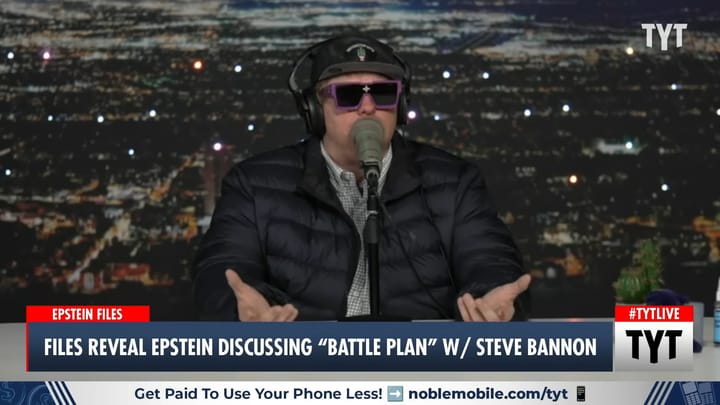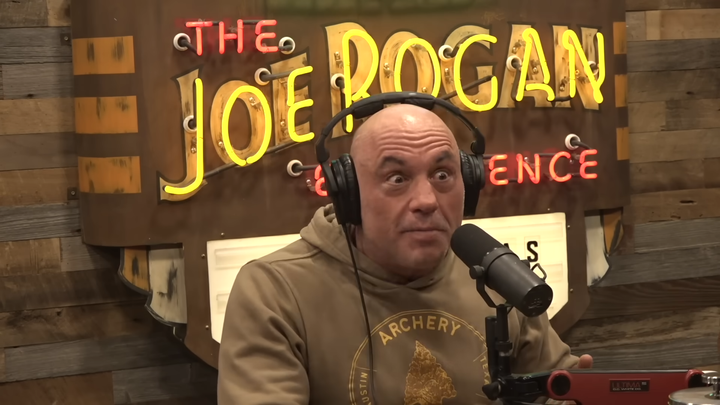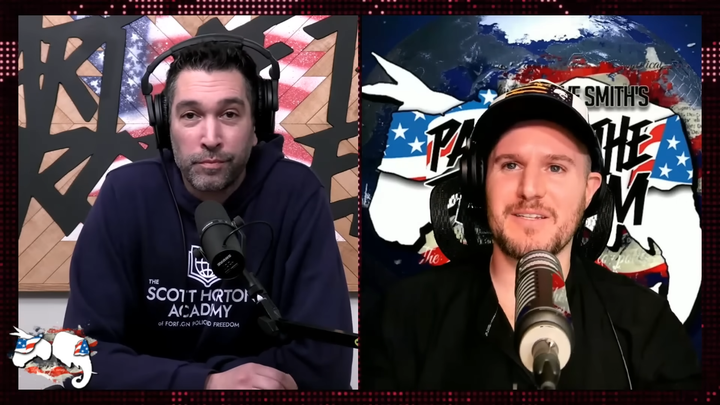Dave Smith, Nazi
The creatures outside looked from comedian to Nazi, and from Nazi to comedian, and from comedian to Nazi again; but already it was impossible to say which was which.
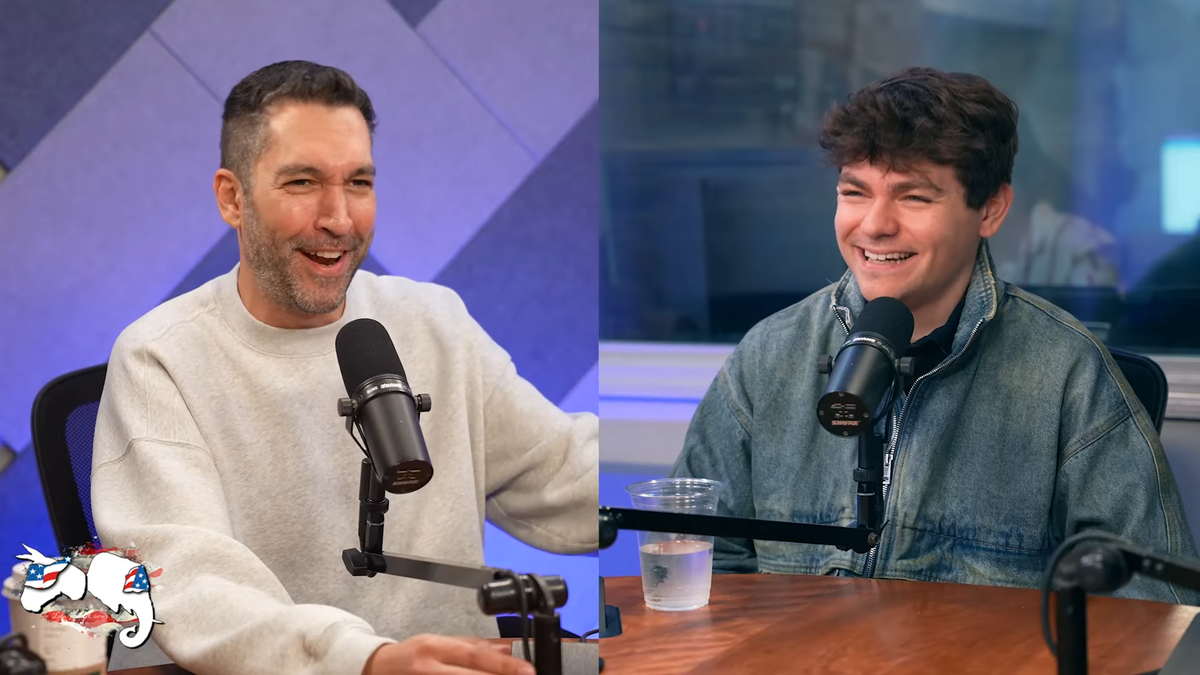
Today the comedian Dave Smith released an episode of his podcast featuring Nick Fuentes, the white nationalist and Holocaust denier who has called for the imprisonment of Black people and the repeal of the Civil Rights Act, and who in 2022 called for a “white uprising” to install Donald Trump as dictator. The three-and-a-half-hour-long, friendly conversation touched on a variety of subjects, including the role of Jewish people in manipulating global society, whether the Holocaust happened, and the plight of white people in America. Below you will find some representative exchanges.
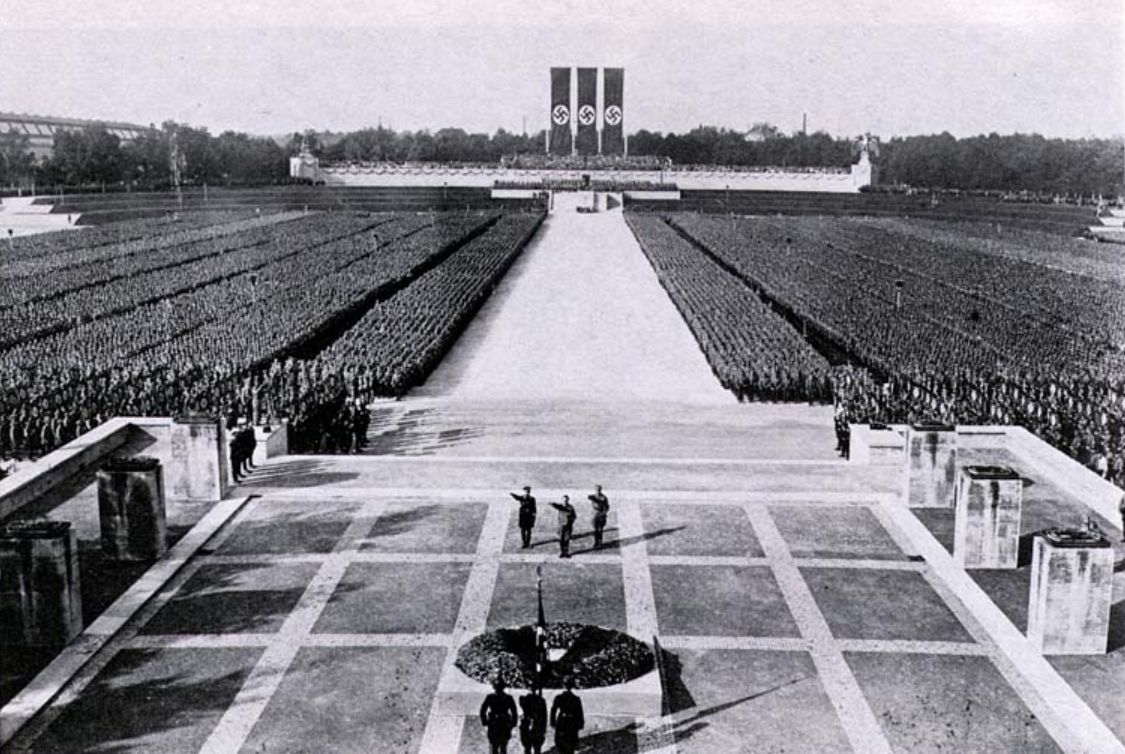
On Destigmatizing Hitler:
"As a white person, why is it that the Holocaust's so toxic? It's because Jews made it that way."
Fuentes: …I distinguish myself as a white person, as someone from Christendom, as an American, and I'm looking to disentangle the Jewish interest from the American interest. And when you say it's bad to say Hitler had aura, I disagree in a sense—
Smith: Well, I'm not saying necessarily it's bad—
Fuentes: It's controversial.
Smith: I'm saying that you understand that that is going to be something that might make a lot of people go, "Oh yeah, I don't want to deal with that guy."
Fuentes: Fine. Fine. Here's where I would push back in a sense is, as a white person, why is it that the Holocaust's so toxic? It's because Jews made it that way. We don't look at the Holodomor the same way. We don't look at China, and you know all these arguments—
Smith: Well, no. I think that's a totally legitimate argument. It's something I've been saying for years too. I think that the idea that Jews have a monopoly on World War II is insane.
Fuentes: Fine.
Smith: Or that anybody should prioritize past Jewish suffering over other sufferings. I'd be like, "Yeah, it's a horrible thing happened but—"
Fuentes: Wait, can I just finish real quick?
Smith: Sure. Go ahead.
Fuentes: So when I say Hitler had aura, I'm trying to basically set a new paradigm where it's like as Americans and moreover as white people, it's like that doesn't have the same impact on us emotionally. It not necessarily. We only feel like that way because of movies, because of museums, because of propagandizing. And so when I look at Larry Fink, Bill Ackman, David and Larry Ellison, I look at them as part of a corporate entity. They're not individuals that happen to be Jewish; they are the Jews. They're organized, they work together.
And as an American, I basically want to take power from them and give it back to Americans. And that necessarily is going to make them weaker and more vulnerable as a community. And so when they say that's antisemitic, it's like everything that's taking power from them to give it to us is going to inherently bolster the narrative that they're becoming more vulnerable. But it's a necessary part of getting power.
Smith: Yeah.
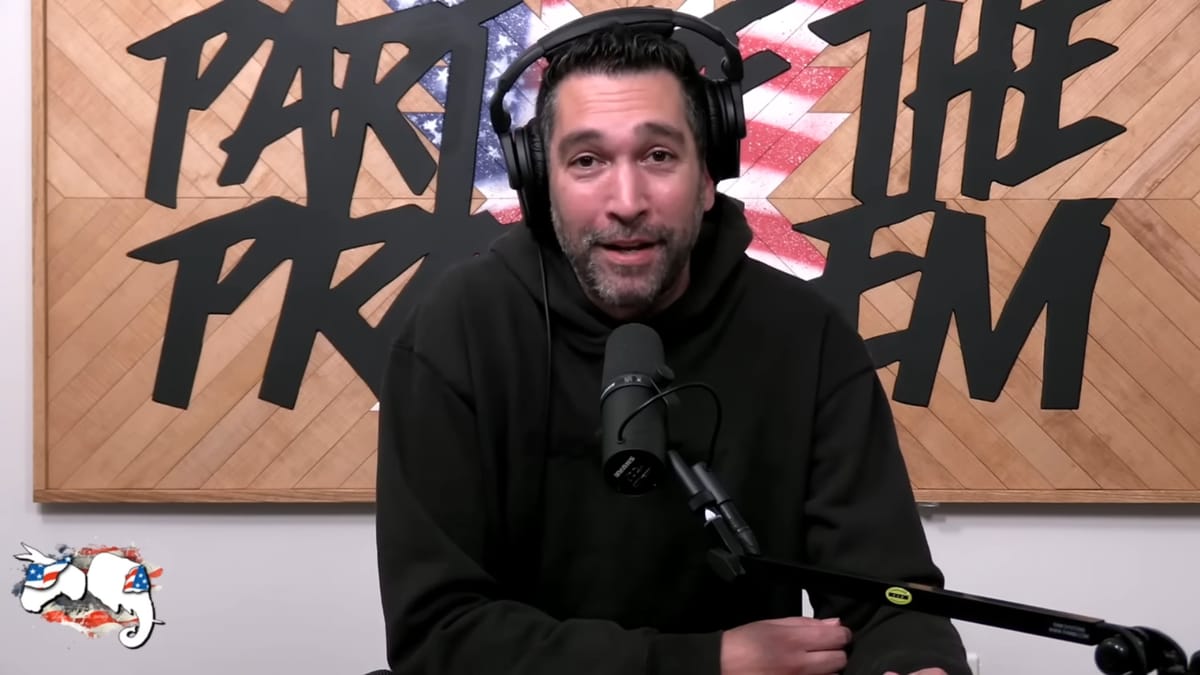
On the Unjustness of America’s Demographic Changes:
"There was never a choice, there was never a referendum on like, should America become a majority-minority country? And that referendum wouldn't have done too good in 1960."
Smith: In some ways, I kind of thought that the alt-right, and then in some ways the Groypers, in a way they were the most honest expression of the Trump moment.
Fuentes: Yeah.
Smith: Because I think there's a—through years of kind of like political correctness, the post-war consensus, all of these things, it's almost like the older generation was... There was an inability to just say it. Because it was perceived as racist—
Fuentes: Right.
Smith: —in order to say it. So there's always code words. It's like "We have too much illegal immigration," "we have too much of..." And when really what the issue was about was that America was being transformed racially. It was being transformed from a majority white country, which it's always been through its entire history, and that's being changed. And it just seemed to me that it's pretty obvious that any—the things the alt-right guys all used to say. If you went to Italy and said, "Hey, we have some demographic projections. This place is going to be 90% French in a few years. Isn't that wonderful?" I think most of them would go, "No, it's not wonderful because we want this to be Italy." [Ed. note: Smith himself used this "alt-right" talking point in 2017.]
And you have this drastic change that was completely forced on the American—there was never a choice, there was never a referendum on like, should America become a majority-minority country? And that referendum wouldn't have done too good in 1960. If you had asked those people—or '65, whenever the bill was. If you had asked those people, it would've been—everybody, including all the Black people, would've been like, "No." You would've got a 99% voting against it.
This happened against the will of the Americans. And during that, it's not even like—they're like, "Hey, the people never asked for this, but we're transforming your society anyway, but we're going to be really cool about it." They didn't even throw that last one in there. They went, "You didn't ask for this. It's happening anyway. And fuck you and everything you hold dear. And also, your son's a girl." It's like, on every level. And I think that was guaranteed to create a pushback. And I think it's crazy to not engage with that.
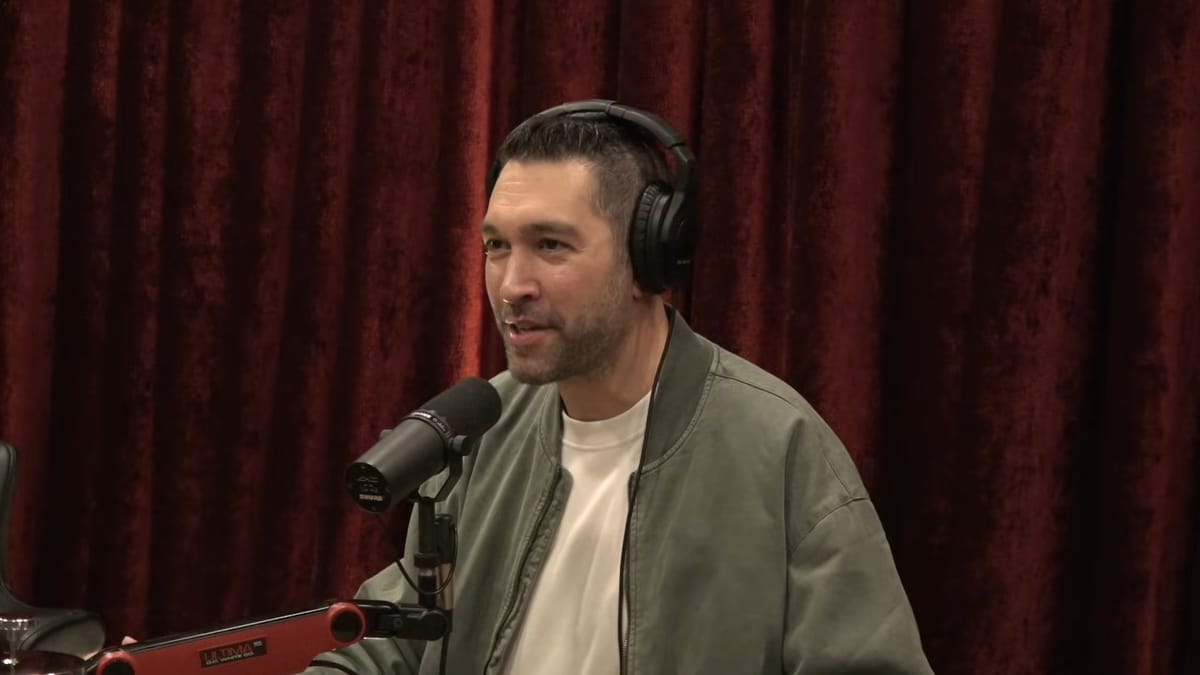
On Fuentes’ Holocaust Denial:
"It's probably not 6 million to the person."
Fuentes: …For me, it was never really about the Holocaust in itself because early on I watched a lot of documentaries, like the canon of Holocaust denial documentaries and essays, and I found a lot of the arguments compelling. And then I saw that other people are pushing back on that. I have good friends of mine who are, they're fellow travelers, let's say, and they adamantly insist it did happen. And they send me blog posts. And at a certain point you sit down and say is this really about World War II historicity debate or historiographical debate? And to me, that's sort of missing the point.
To me, the Holocaust is just like it is just a central part of the Jewish identity story, which is that "if the white people get too much power, they're going to kill us all. And that means if we don't have enough power, they're going to kill us all. If they can critique us, they're going to kill us all." You know, it's wrapped up, and this has been pointed out before, that more Jewish people think that the Holocaust is central to their identity than believe that believing in God is central to their identity.
And that just tells you about what Jewish identity really is and how it's political. And so to me what matters more, I don't know. I think it was exaggerated. I think it was embellished. I don't know that six million exactly died, but I don't know. I'm not an expert and I don't really even care about being an expert. To me, it's more about, like you said, I don't want this trauma imposed on me and for it to define our political order, because that's really the issue.
Smith: Well, so that part I think is 100% reasonable. And in fact, as you said, that the Holocaust is more central to Jewish identity than God. It's certainly true for non-religious Jews and even maybe for some religious Jews. It is very central to Jewish identity, and I think in unhealthy ways And I think absolutely you're right about this being kind of the—I love when [Holocaust revisionist] Daryl Cooper made this point, but it was such a perfect way to put it, where he was like, 'Look, the founding fathers are Martin Luther Ling and—" You now what I mean? He goes, you could test that out, like, go desecrate a statute of George Washington and then go desecrate a statue of Martin Luther King and see what has more of the reaction. And it's really like World War II and the civil rights movement have become the American consciousness. And then the Holocaust and World War II being the same for Jews.
[...]
I've been down this rabbit hole a bit, but it's like I really don't actually think it's that exaggerated. It's probably not 6 million to the person, but I think even David Irving, I think he put it between four and five, and that was like on the low-end estimate. Even if it's four or five, it's like, what are we even fucking talking about here? It's all the same thing.
Fuentes: Right.
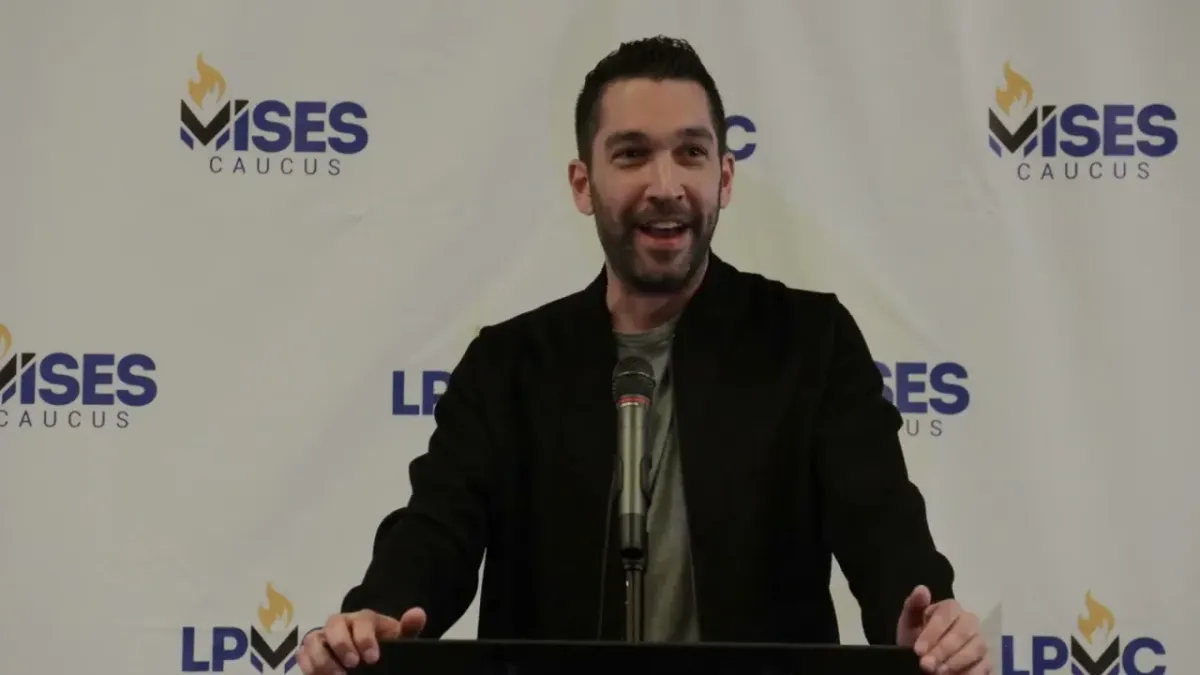
On the Obsolescence of the Civil Rights Act:
"There would have to be some type of system where it's like, look, white people are—they can't be discriminated against under the law, and they can't be discriminated against in other ways either. And they have to also be allowed to say what they want to say."
Smith: So I was born in 1983. This is 20 years—less than 20 years, 19 years after the Civil Rights Act. So it kind of does make sense in a way that perhaps there was a different outlook only 20 years after the Civil Rights—and now it's 2025! This is actually quite a bit further—this is 60 years after the Civil Rights Act, now. And I do think that in order to move forward, the only way to do this would be to declare—man, I hate saying this word, but actual equality of some sense. It would actually have to be like, "look, nobody's getting discriminated against under the law." Either nobody has a right to have their special—their group interest, or everybody gets to do it.
I think the way it worked when I was a kid, it's almost like there was a gentleman's agreement. There was a gentleman's agreement where it was kind of like, look, we know bad things happened to minorities in this country in the past, and so we are not going to say some of the things that we obviously know, and we'll even allow you to say a little bit about us. That was kind of the gentleman's agreement. And at a certain point it was like the progressive left, particularly, just broke this gentleman's agreement. And they were like, "Well no, we're going to say everything that we want to say," and then eventually I feel like the young white men were kind of like, "Okay, well then screw it. So then there's no gentleman's agreement anymore."
And I remember—I'm sure you saw this, when Scott Adams had that comment a couple years ago, I guess it was, that went super viral. Scott Adams, who unfortunately is, I think, very sick these days. Me and him have argued a few times on Twitter, but I was sad to hear that. But he said, "The thing," he was like, "My advice to white people, just don't be around Blacks." Like, just move away, move to a different neighborhood, where they're not there. And I remember first hearing that, and going like, "Yo, that's fucked up, dude." And then, the second after I went, "Oh, that's fucked up," I went, "That is exactly what I did. That is exactly what I did."
I mean, I remember me and my wife were looking at the town that we ultimately moved to, and it's just like... There was a grading thing, when you look at towns, and they're like, "Schools, A-plus." Like, "This, A-plus. This, A-plus. Crime, A-plus. This, A-plus." And they go, "Diversity, D-minus." And I was like, "Cool." Again, it's not like I don't care, but it's like those other things are important to me, and they do seem to be attached to this one. And so, it's like, I think in order to kind of put this fire out, there would have to be some type of system where it's like, look, white people are—they can't be discriminated against under the law, and they can't be discriminated against in other ways either. And they have to also be allowed to say what they want to say.
Then to your point, there are legitimate grievances that Black people have. I mean, there is no—and this is my own bias I guess, but much of it doing with government policies. Almost everything that's handed to them from the state is absolute garbage. And their schools are really bad, and there's legitimate grievances there. I also think welfare has done enormous damage. But you can't just blame all your problems on white people and racism. I mean, that actually is not really what's holding Black people back in this country. And I think we have to be honest about that, if we don't want things to go in an ugly direction.
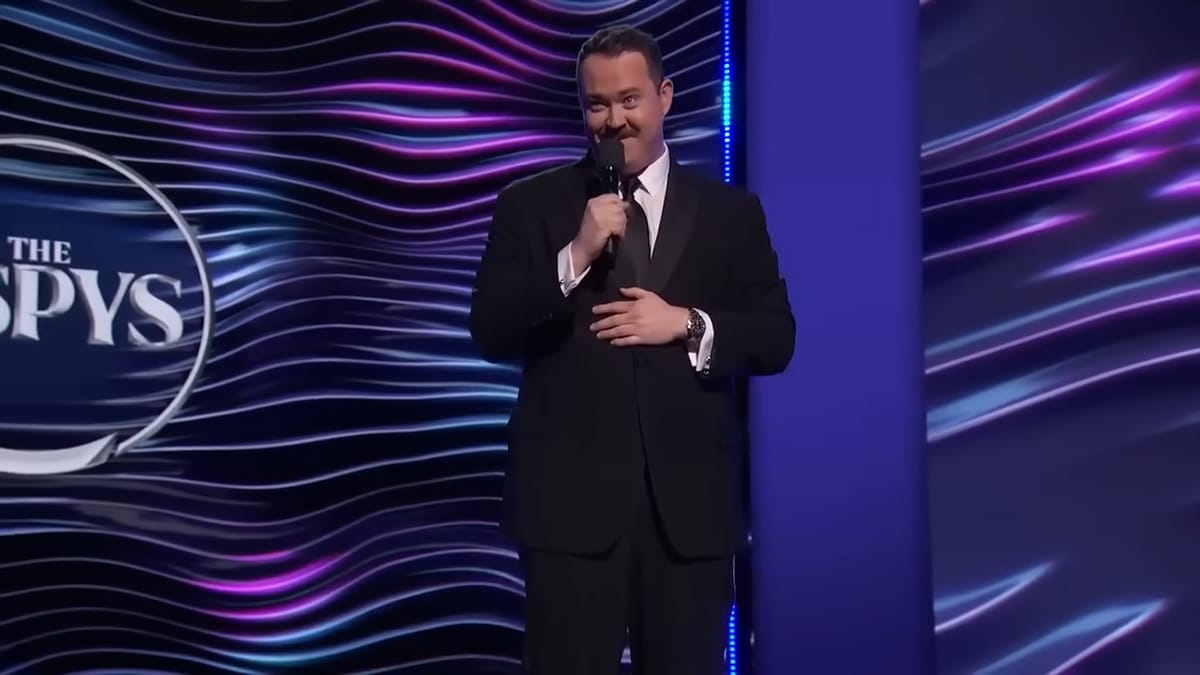
On the Jews’ Control of Global Society:
"I don't even think people realize the extent to which Jews are organized."
Smith: …The Zionists weren't able to gain so much control of the American military machine because simply they tricked everybody or something. It's because it was good for business. And you can watch this. All the neocons went and they made their independent relationships with the military industrial complex. Look at all those Bill Kristol think tanks, and you're, "Who's funding that think tank? Look at that, Lockheed Martin. Ain't that a coincidence?"
In the same way that there are, say, thinkers like John Rawls or John Maynard Keynes who are beloved figures in Washington, but it's not because any of them read the books or care about the argument. It's just that they prescribed more power for Washington DC. And so Washington DC is like, "You made an excellent point." It's not like anyone there was like they were reading Hayek or something, and then reading Rawls and going, "This guy's arguments are superior." It's just good for business, man. That's a big part of it, at least.
Fuentes: Well, and I don't disagree at all because that's the nature of institutions. They're self-perpetuating. They'll prescribe themselves bigger budgets and more missions and things. I totally agree with that. That's the professional managerial classroom they do. But where I would push back is saying that let's say for example, like Larry Ellison. Larry Ellison is second-richest guy in the world. They're buying the media. Him and his son are buying TikTok. They're buying CBS. Who does he put in charge of CBS? Bari Weiss. Bari Weiss was held by [Yoram, I think] Hazony and Brett Stephens. It's like that very clearly is a Jewish club, and they're cutting through society and yeah, they run in other elites' circles.
And yeah, they have their accomplices that are not Jewish. Look at the Trump administration, Trump brokered that deal. He's a Gentile, but he got money from Miriam Adelson and his grandchildren are Jewish because his son-in-law is Jewish. It's almost like that exception doesn't prove the rule. You're right about the Vulcans, Condi and Bush and all them, they're Gentiles too. But it seems that society is always being pushed by this organized minority, because you're right. There are Rawlsian liberals that are white and there are evangelical Christians that are white, that are neo-cons.
But it just seems like the Jews being, because by definition they're organized in a way that nobody else is. Bush is not organized as a white guy or even very much as a Christian. But you do have a World Zionist Congress. You do have a World Jewish Congress. You have the Conference of [Presidents of] Major American Jewish organizations. I don't even think people realize the extent to which Jews are organized. In community centers by Chabad, in university with their fraternities, and in business and in their localities. It's like they're extremely organized.
As far as the average Jew is concerned, yeah, they're not running the banks. I don't think your average Jew is like a spy. But I do think that your average Jew is inherently distrusting of patriotism and nationalism. It's like Sarah Silverman said, when she saw her white boyfriend put a American flag pole on her lawn, and she said it reminded of Hitler. How many Jews is that attitude prevalent? When they saw Trump, they thought the same thing. "Fascism, they said it could not happen here." It's that same attitude. Here's what I will concede. I think that we, by we, I mean me, if my movement wants to have power and really put America first, it means we are going to have to sideline by definition Jews that put the Jewish nation first.
Smith: Christians too, for the matter.
Fuentes: I disagree. I think American Christians—
Smith: I'm saying Christians who put Israel first. for that matter, too.
Fuentes: Oh, yeah, for sure.
Smith: Which there are plenty of. And look, it is a huge part of this because you talk about the organization, but I think that's very true for evangelical Christians, who are constantly having preachers tell them that, "This is your duty is to have this political outlook." There's tens of millions of them in the country. Again, you can always say, "Well, that's the Jews manipulating them." But again, it just seems like this is presuming the conclusion. It's like—
Fuentes: But we are. Are we not being manipulated though in that way?
Smith: Of course. No, I'm not denying that. I'm just saying it's not just Jews at the top of the doing the manipulation.
Fuentes: I agree, but that's where I have to come in as a Christian white American and say, we have to disentangle these things and say, and yeah, wake up the evangelicals and say, look, you're American. You're Christian. They are not Christian. They are not American. It is not in our interest. We have to take our own side.
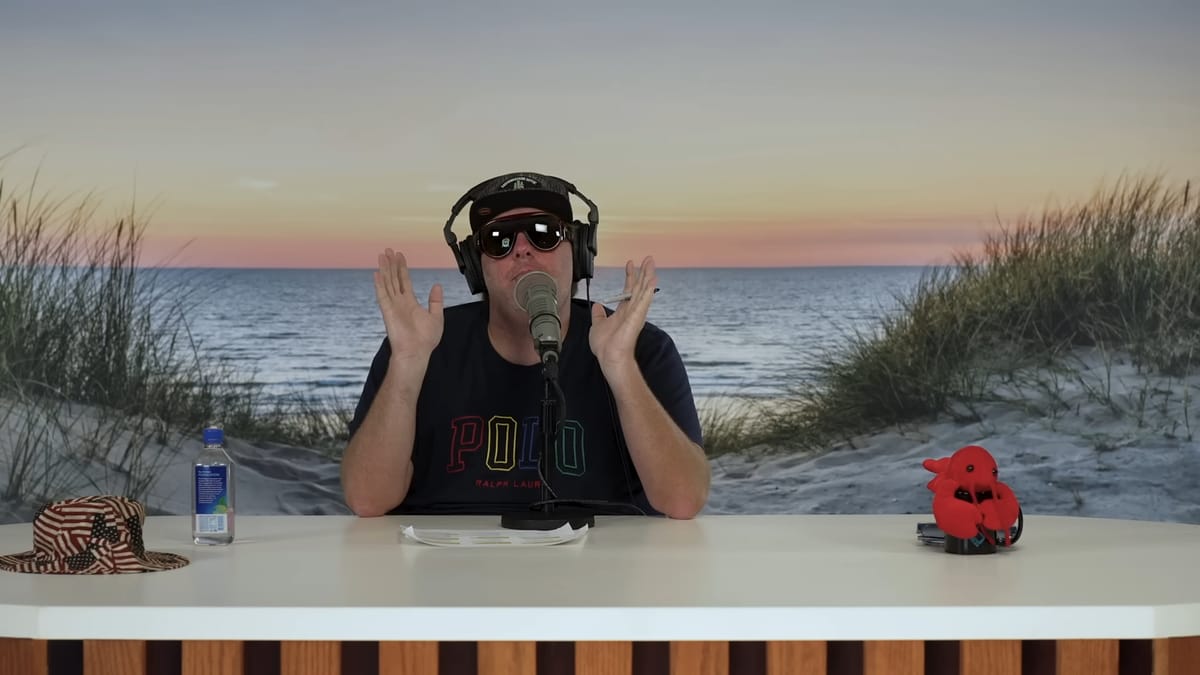
On How Tough Things Are for White People:
"They really did come up under a system that was overtly bigoted against them."
Smith: And one of the things I've been thinking about a lot with that is that it's probably just, from my perspective, being my age, it's much easier for me to go, "All right, let's just go back to the before time." Before this woke insanity, things weren't that crazy, at least culturally, whereas I think your audience, and part of mine, but more so your audience, which is younger, naturally, they lived through it in a different way than I ever did. And you think about that, what was the kid's name? Sand? Sandman? Nicholas Sandman?
Fuentes: Oh, yeah, yeah. Nick Sandman.
Smith: The guy, they tried to ruin this kid's life for the crime of being an angel. I mean, dude, Nick, man, I am lucky that there wasn't social media or podcasting shit when I was a kid. But I remember saying on that show—man, if me and my friends, when we were teenagers, if those Black Israelites—because we were just little fucking hooligans from Brooklyn—if they had come up and started talking all that shit to us, "You guys are colonizers," we would've immediately been like, "That's right, bitch. Yeah, we took your shit, didn't we? Oh yeah." They go, "You raped our women." "Oh, and you didn't do shit!" We would've just immediately started talking shit back to them. There would've probably been a fight.
This kid does nothing, just a Catholic kid who's in there for a ride. So he just smiles. He just stands there and smiles. And they tried to ruin his life over that. And I think for a lot of people that you talk to, I'm not saying they were Black people growing up in the Jim Crow South, but they really did come up under a system that was overtly bigoted against them, where it was like, "Hey, it is the law of the land that you will be denied opportunities. We're looking to put women, and people of color, and everything except you, straight white man. We're looking at everything else." Your university hates your guts. Hollywood hates your guts, the media, the political class. And it's a big ask, after all of that, when you get the leg up to go, "Can you be cool now?"
And so I understand where that's a tough thing to ask. At the same time, I do think, as you mentioned, we're not going to live in a white ethnostate. We can't go back to 1965 and undo the Immigration Act, and this is going to be a multiracial society of some sort. And we ought to think about, okay, how do we move forward in a way that's conducive to peace and prosperity, which is kind of what we all, on some level, want.
You almost get the impression that Smith does not, in fact, want a peaceful and prosperous multiracial society.






